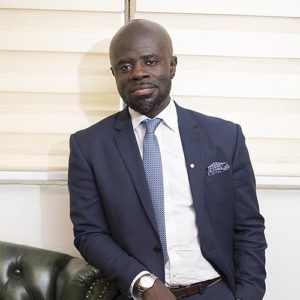Lawyer calls for abolition of court filing fees

Mr Kofi Abotsi, the former Dean of GIMPA Law School, says the Judiciary must expand access and remove barriers to its services to ensure optimal justice delivery for the public good.
“Filing fees and generally all factors that create the impression that justice in Ghana is taxed must be removed,” Mr Abotsi stated on Tuesday in his presentation at the ongoing 70th Annual New Year School and Conference at the University of Ghana.
Mr Abotsi, who is also a legal practitioner, spoke on the topic “Judicial Independence and Democratic Consolidation”.
He said: “In order to further maximize the role of the Judiciary, we must focus on the appointment of judges and how we have gone about this in the past. It is a common refrain among lawyers now to decry the quality of some judges of our courts and this has been pinned down to the model of appointment as well as appointment culture.”
Mr Abotsi said given the complexity of today’s problems, “we need judges with the required level of sophistication in jurisprudence and the philosophy of law.”
He noted that mechanical approaches to law and the needless application of foreign authorities would not do and that “regrettably this had been the case in recent times in some of the cases dealt with by courts and there is the need to change the trend”.
The four-day programme, on the theme: “Building Strong Institutions for Democratic Consolidation in Ghana,” is being organised by the School of Continuing and Distance Education of the College of Education, University of Ghana, in collaboration with the Ministry of Local Government and Rural Development.
It is being attended by more than 300 participants such as metropolitan, municipal and district chief executives (MMDCEs), assembly members, academia, policy makers, civil society organisations, labour unions, political parties and members of the public.
“If the Judiciary plays a pivotal role in democratic consolidation, it is because democracy is fundamentally about conflict; conflict of ideas; in interests; opinions. It is about divisions in preferences; it is about disputes and it is about the advancement of one’s interest through peaceful litigation,” Mr Abotsi said.
“For when structural judicial resolution fails, open conflicts take over the streets and we will be worse off for it.”
Chief Justice Sophia Akuffo, in a speech read on her behalf, noted that the Judicial Service of Ghana still lacked fiscal independence, as its budgetary request was never fully met by the Executive arm of Government.
She said as a result, the Judicial Training Institute relied heavily on donor support for its training programmes in the areas of development and delivery of programmes, provision of training logistics, development of books and training manuals.
She said its activities were, therefore, limited and not as effective as was the case in jurisdictions where there was adequate budgetary support.
Source: GNA
